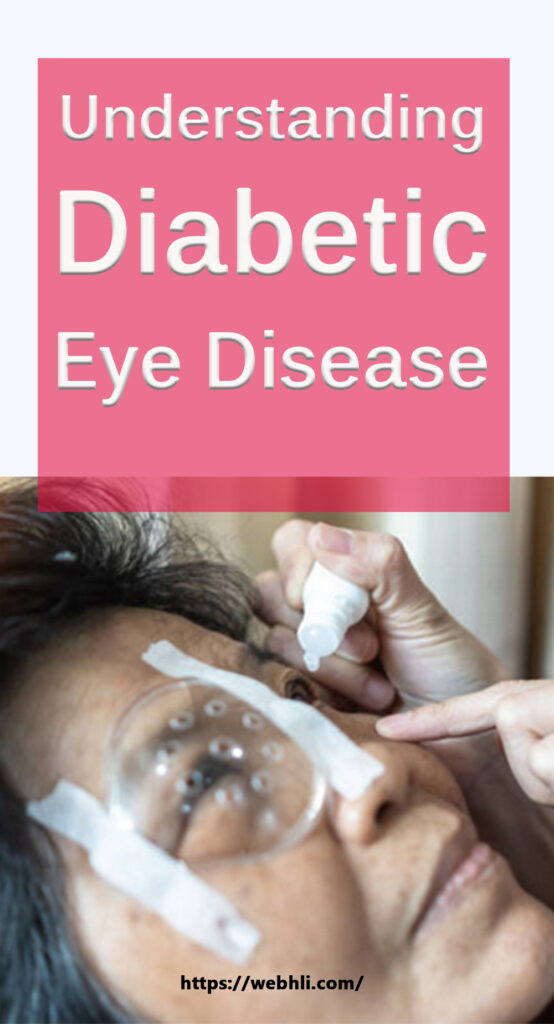
Diabetes is a growing concern on a global scale. Poor lifestyle choices are seeing more and more people being diagnosed with Type 2 Diabetes throughout the world than ever before. With this high number of diabetes sufferers comes an increased number of diabetic eye disease.
For many people who have recently being diagnosed with this blood sugar disease, they don't understand why regular eye tests are recommended or how this disease can have such a negative effect on their eye sight moving forward.
Check out these related articles, too:
What Happens If Your Blood Sugar Is Not Managed Well?
The 10 Best Foods to Control Dangerous Blood Sugar Levels
The Dangerous Side of Diabetes Drugs
6 Simple Tips to Avoid Dangerous Blood Sugar Levels
Why The Diabetics Food Guide Pyramid May Be Dangerous
Severe Uncontrolled Diabetes Warning Danger
High Blood Sugar Symptoms and Dangerous Blood Sugar Levels
Something you need to be aware of if you have been diagnosed with diabetes is that diabetic eye disease is the leading cause on blindness on a global scale for those under the age of sixty five. The main concern is the number of people that have no idea they have this disease. In most instances diabetic eye disease starts displaying signs and symptoms in those who have been struggling to manage their disease for a number of years.
The biggest issue is that this can lead to a wide range of eye issues from temporary blurred vision to permanent vision loss. It also increases the risk of cataracts and glaucoma in diabetic patients.
One of the biggest reasons why you may be diagnosed with diabetic eye disease is not managing your blood sugar levels effective. With proper management and medication, you can manage your blood sugar levels effectively to reduce the risk of being diagnosed with diabetic eye disease. For many patients they don't even realise they have an issue with their eyes as progress is slow.
In order to reduce the risk of getting diabetic eye disease you need to monitor and manage your weight, follow a healthy and well-balanced diet and exercise regularly. In addition to this you should be monitoring your blood sugar levels regularly and if prescribed medication, take it as per the instructions to ensure you are doing everything you can to manage your disease effectively.
Some of the problems you may encounter when you find out you have diabetic eye disease includes the retina. Changes in the blood vessel walls can cause the blood vessels to balloon, this causes them to leak fluid and blood. This condition is often referred to as diabetic retinopathy.
In some cases new blood vessels will grow, this could potentially be more harmful in the long run, leading to retina detachment, glaucoma or cataracts in the long run. The good news is that these eye conditions are all treatable, but not all are as successful as others.
Blurring is one of the first signs that you may be suffering with diabetic eye disease if you have already been diagnosed with diabetes. Due to the millions of people around the world who are living with this disease every day and have no idea they have it, any blurred vision should result in a visit to the local optician or eye specialist, ruling out diabetic eye disease and giving you a diagnosis that you can rely on and trust.
Each of the diabetic eye conditions can be managed and monitored. In the early stages of diabetic retinopathy your eyes will be monitored regularly to ensure the signs and symptoms are not getting any worse. This is a slow progressive disease, which means it could take years before the first symptoms show. Therefore in most instances, once you have been diagnosed with the disease, you will attend regular eye examinations to ensure that your eyes are not getting any worse.
Laser treatment, eye injections, and retinal surgery are often the best course of action when it comes to retina problems caused by diabetes or cataracts. Glaucoma is often treated with medication.
Mahi Muqit is a leading consultant ophthalmologist, cataract and vitreoretinal surgeon at two private clinics in London, United Kingdom. The clinics are based at Moorfields Private and 119 Harley Street. He provides patients with superior service and support with a range of surgical procedures to meet their eyesight requirements. He has built up a solid reputation for his eye services in the London area as an expert eye doctor and surgeon offering surgical retina, medical retina and complex cataract surgery. He also offers surgery to patients suffering from diabetic retinopathy. Mahi Muqit is a member of the Royal College of Ophthalmologists, a member of the British and Eire Association of Vitreoretinal Surgeons and the UK and Ireland Society of Cataract and Refractive Surgeons, and a member of the Diabetic Eye Care Committee for the International Council of Ophthalmology. To find out more, visit http://www.retinasurgeon.uk.com
Article Source: http://EzineArticles.com/9246168

 Protected by Patchstack
Protected by Patchstack